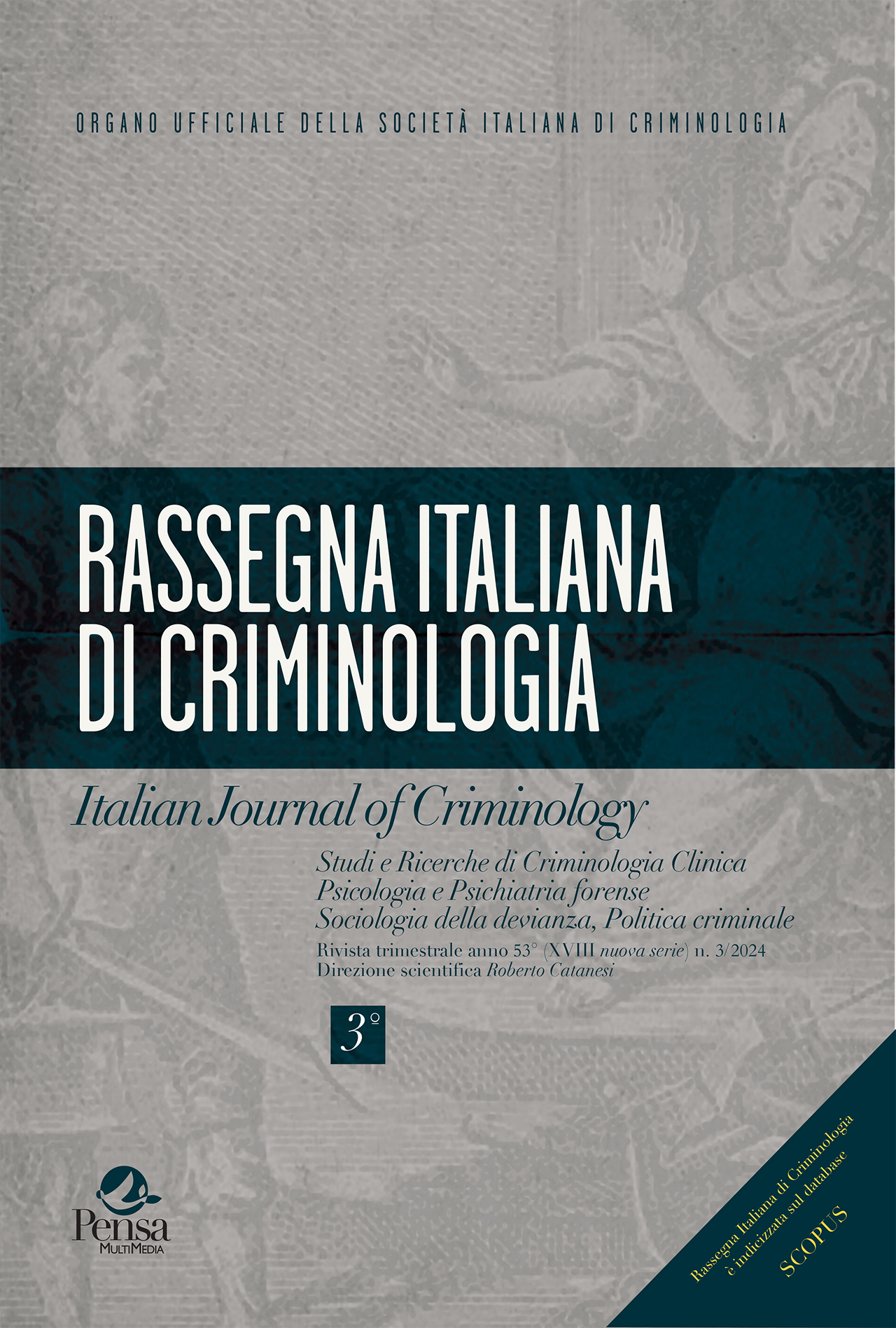Ecoterrorism between knowledge and social perception
DOI:
https://doi.org/10.7347/RIC-032024-p179Abstract
Terrorism has ancient origins. Criminology for years has been studying and investigating this phenomenon in its different declinations: terrorism of religious matrix, terrorism of political matrix, without neglecting more recent realities, such as the massacres carried out by the Incel community. Within these new realities under study, there is also room for the so-called "ecoterrorism," the birth of which is traced back to Britain in the early 1970s.
The aim of this contribution is to first provide a historical excursus of the phenomenon, detailing its characteristics on the criminological side, and then to present a quantitative research through interviews whose purpose was to investigate the opinion of Italian men and women with regard to activism (including violent activism) of an environmentalist and animalistic nature. The research was conducted through 1,009 online interviews among compatriots aged 18 to 70, a representative sample of the national population by gender, age groups, geographical location, size of municipality of residence, social class, and educational level. The interviews were realized using the Computer Aided Web Interviewing (CAWI) method. The research took place in mid-July 2023. In the final part, analysis of the obtained results and discussion regarding them offer information about the respondents' and interviewees' perceptions of how deviant (in the criminological sense) this phenomenon can be considered, even in light of the current climate emergency.
Downloads
Published
Issue
Section
License
Copyright (c) 2024 Isabella Merzagora, Guido Travaini, Palmina Caruso

This work is licensed under a Creative Commons Attribution 4.0 International License.





